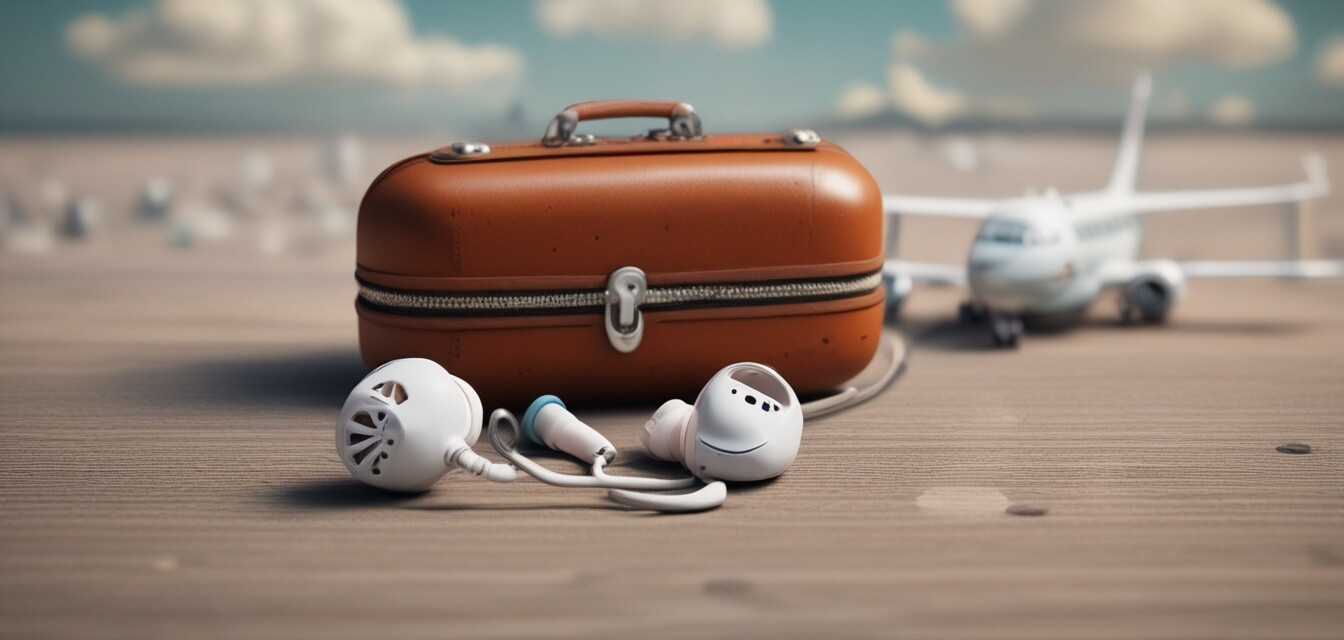
Travel essentials: Best earbuds for frequent flyers
Key Takeaways
- Choose earbuds with excellent noise cancellation for a serene flying experience.
- Look for lightweight and compact designs for easy portability.
- Comfort is crucial during long flights; choose ear tips that fit well.
- Consider battery life—from long-lasting options to quick charge capabilities.
Frequent flyers understand the importance of quality sound and comfort during travel. While soaring through the skies, the right pair of earbuds can transform your journey. In this guide, we’ll explore the best earbuds tailored for the needs of travelers, focusing on features that enhance comfort, noise cancellation, and portability. Let’s dive in!
Why earbuds are essential for frequent travelers
Earbuds have surged in popularity due to their compact design and convenience. They are perfect for travelers who prioritize light packing and portability. Here are a few key reasons why earbuds are must-have travel essentials:
- Noise cancellation: Block out the intrusive sounds of the airplane or chatter from fellow passengers.
- Comfortable wear: With various ear tip sizes, you can find a perfect fit for long listening sessions.
- Portability: Earbuds are easy to store in small spaces, reducing clutter in your travel bag.
Key features to consider when choosing earbuds for travel
1. Noise cancellation
Effective noise-cancelling technology will enhance your travel experience by minimizing ambient sounds. Look for:
- Active noise cancellation (ANC) for superior sound isolation.
- Passive noise isolation, which provides a snug fit to block external noise.
2. Comfort
Comfort should not be overlooked when selecting earbuds for long flights. Consider the following:
- Choose from multiple ear tip sizes and materials (foam, silicone, etc.) for the best fit.
- Lightweight designs feel less obtrusive during long wearing periods.
3. Battery life
When traveling, having enough battery life is crucial. Here's what to look for:
- Long playtime per charge—aim for at least 6-10 hours of usage.
- Quick charge capabilities to get back to listening in no time.
Comparison of leading earbuds for travelers
| Brand | Noise Cancellation | Battery Life | Weight | Special Features |
|---|---|---|---|---|
| Brand A | Excellent | 8 hours | 5g | Touch controls, water-resistant |
| Brand B | Good | 10 hours | 6g | Quick charge, built-in microphone |
| Brand C | Very Good | 12 hours | 4g | Adaptive EQ, customizable fit |
Tips for using earbuds during flights
Best practices for a better experience
- Adjust the noise cancellation settings based on your environment.
- Keep your earbuds charged before flying.
- Store them in a travel case to protect from damage.
Conclusion
Choosing the right earbuds for traveling can significantly enhance your flying experience. By focusing on key features such as noise cancellation, comfort, and battery life, you'll be well on your way to enjoying your favorite music or podcasts while flying high. For more insights on other types of headphones, explore our Headphone Buying Guides.
Frequently Asked Questions
What should I look for in earbuds for flying?
Focus on noise cancellation features, comfort levels for extended wear, and battery life to ensure uninterrupted listening.
Are wireless earbuds a good choice for frequent flyers?
Yes, wireless earbuds are highly convenient, offering freedom of movement without tangled wires.
Can I use earbuds during takeoff and landing?
It varies by airline policy; typically, you can use them once the flight reaches cruising altitude.
Pros
- Compact and portable for easy travel.
- Various options for noise cancellation.
- Comfortable for long-term wear.
Cons
- May have limited battery life compared to over-ear options.
- Some models may lack features like customizable sound settings.